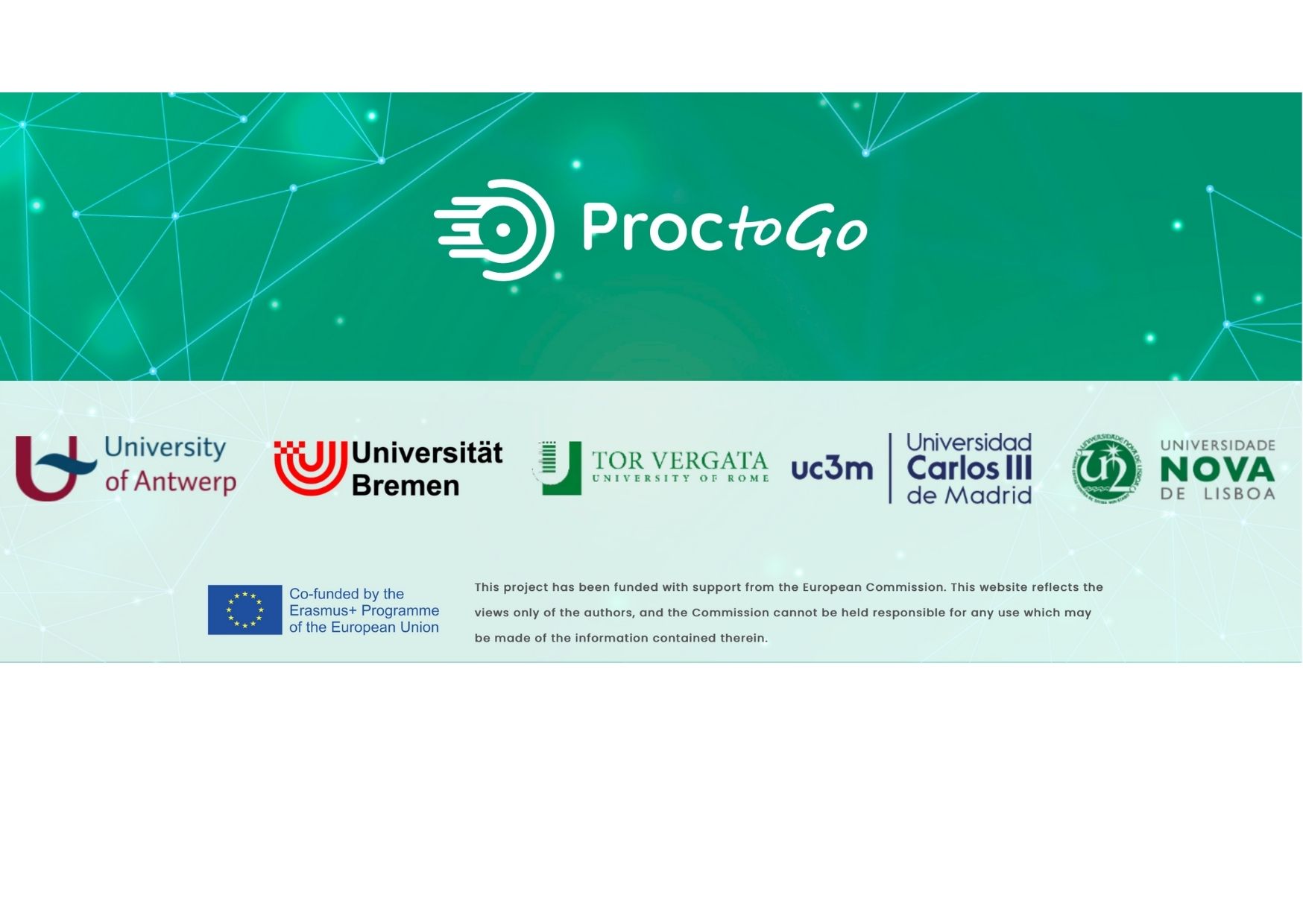The project ProcToGo – Digital Tools and Sustainable Goals is stepping up its visibility! Are you interested in knowing more about sustainable procurement and how to enhance students’ employability in this topic?
Then visit the project’s new website and follow them on Twitter, LinkedIn and Facebook! ProcToGo is co-funded by Erasmus+ KA2 and is led by Tor Vergata University of Rome. Partners to the project are University of Antwerp, University of Bremen, Universidad Carlos III de Madrid and NOVA University Lisbon.
The context for this project is determined by the changes in the Education sector where “traditional” universities are challenged by new players, namely digital universities but also digital education platforms. These new players are offering learning opportunities that are wider and more flexible than “traditional degrees”. The challenge is not only related to the creation of digital contents but also centered on how to recognise and certify the skills that learners are acquiring in terms of microcredentials/open badges referring to specific skills. Even more the challenge is related to the continuous updating of the state-of-the-art skills required by the job market.
ProcToGo proposal focuses on the area of Procurement. In many universities, Procurement, being a practice-oriented discipline, has a limited relevance and it is included as a core subject in just a few courses/programmes, mainly related to Operations or Supply Chain Management. Even more in most programmes, Procurement is taught in a very “disciplinary” way: looking either at its managerial implications, or at its engineering requirements or, eventually in courses of administrative law, at the legal constraints in Public Procurement. However, there is a strong need for high quality training given that procurement activities: 1) cover a significant share of the budget of most organisations (both in the private and in the public sector); 2) are going to be strongly affected by the new digital technologies; and 3)can be a strong leverage for achieving sustainable goals. Such a training gap is even more relevant considering that new digital technologies are reshaping the procurement processes and that companies are asking for procurement professionals with new digital skills.
For more information, visit the project’s website.










